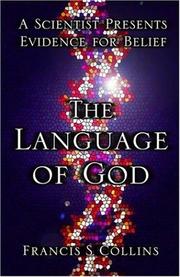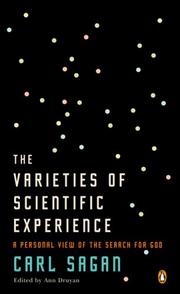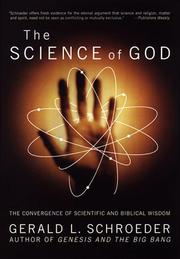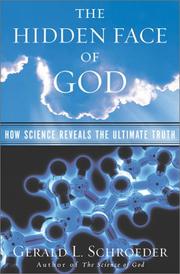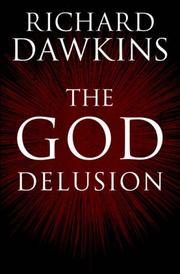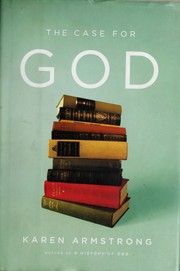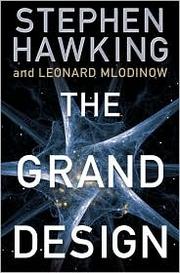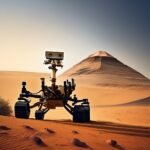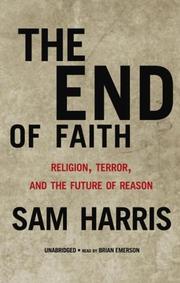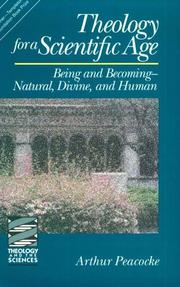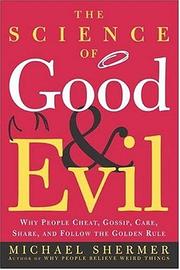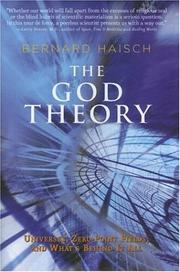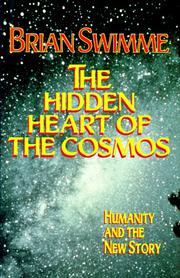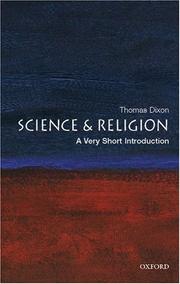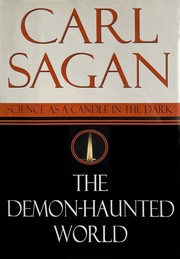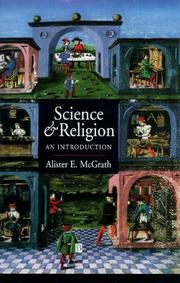Are you fascinated by the intersection of science and religion? Whether you’re a devout believer, a curious skeptic, or simply a lover of thought-provoking literature, there are countless books that delve into the complex relationship between these two seemingly disparate realms. In this article, we’ve carefully curated a list of the 20 best books about science and religion that will challenge, inspire, and ignite your curiosity. From historical explorations to contemporary debates, these science and religion books offer diverse perspectives and profound insights that will surely captivate any reader with an interest in this intriguing subject.
Contents
- 1 20 Best Science And Religion Books
- 2 The Language of God
- 3 The Big Picture: On the Origins of Life, Meaning, and the Universe Itself
- 4 The Varieties of Scientific Experience: A Personal View of the Search for God
- 5 The Science of God: The Convergence of Scientific and Biblical Wisdom
- 6 The Believing Brain: From Ghosts and Gods to Politics and Conspiracies—How We Construct Beliefs and Reinforce Them as Truths
- 7 The Hidden Face of God: Science Reveals the Ultimate Truth
- 8 The God Delusion
- 9 The Moral Landscape: How Science Can Determine Human Values
- 10 The Case for God
- 11 The Grand Design
- 12 The End of Faith: Religion, Terror, and the Future of Reason
- 13 Theology for a Scientific Age: Being and Becoming — Natural, Divine, and Human
- 14 The Science of Good and Evil: Why People Cheat, Gossip, Care, Share, and Follow the Golden Rule
- 15 The God Theory: Universes, Zero-Point Fields, and What’s Behind It All
- 16 The Hidden Heart of the Cosmos: Humanity and the New Story
- 17 The Language of God: A Scientist Presents Evidence for Belief
- 18 Science and Religion: A Very Short Introduction
- 19 The Demon-Haunted World: Science as a Candle in the Dark
- 20 Why Science Does Not Disprove God
- 21 Science and Religion: An Introduction
- 22 Final Thoughts on Best Science And Religion Books
- 23
20 Best Science And Religion Books
The Language of God
by Francis Collins
The Language of God by Francis Collins is a captivating book on science and religion that delves into the intersection of faith and scientific discovery. Collins, a renowned geneticist and devout Christian, offers a thought-provoking exploration of how science and religion can coexist harmoniously. He shares his personal journey from atheism to faith, and how his scientific career has only deepened his belief in God.
Collins skillfully navigates complex topics such as evolution, the origins of the universe, and the role of spirituality in a world driven by scientific inquiry. He presents a compelling argument for the compatibility of faith and reason, challenging readers to consider the profound implications of both science and religion in understanding the mysteries of life.
Through engaging storytelling and insightful analysis, The Language of God offers a fresh perspective on the age-old debate between science and religion, making it a must-read for anyone seeking a deeper understanding of the dynamic relationship between the two.
The Big Picture: On the Origins of Life, Meaning, and the Universe Itself
by Sean Carroll
The Big Picture by Sean Carroll is a thought-provoking exploration of the origins of life, the meaning of existence, and the vastness of the universe. As a book on science and religion, Carroll delves into the fundamental questions that have puzzled humanity for centuries, offering a comprehensive and engaging analysis of the intersection between scientific understanding and philosophical inquiry.
Carroll skillfully navigates the complex relationship between the natural world and human consciousness, challenging traditional religious narratives while presenting an alternative perspective rooted in scientific principles. His insightful discussions on cosmology, evolution, and the nature of reality provide a fresh and enlightening take on the age-old debate of science and religion.
Through rigorous scientific reasoning and compelling storytelling, Carroll offers a compelling vision of the universe and our place within it, inviting readers to contemplate the profound implications of modern scientific discoveries on our understanding of existence. The Big Picture is a must-read for anyone seeking a deeper understanding of the interplay between scientific inquiry and spiritual contemplation.
The Varieties of Scientific Experience: A Personal View of the Search for God
by Carl Sagan
The Varieties of Scientific Experience: A Personal View of the Search for God by Carl Sagan is a captivating exploration of the intersection between scientific inquiry and spiritual exploration. In this thought-provoking book on science and religion, Sagan delves into the complexities of the universe and the human quest for meaning, offering a rational and insightful perspective on the age-old question of faith versus empirical evidence.
Through a series of lectures, Sagan delves into the science and religion book and offers a deeply personal and compelling examination of the nature of the cosmos, the origins of life, and the human impulse to seek understanding and purpose. His eloquent and accessible prose makes this book about science and religion essential reading for anyone interested in the profound questions that lie at the heart of human existence.
With wisdom and wit, Sagan invites readers to ponder the mysteries of the universe and consider the profound implications of our scientific and spiritual inquiries. The Varieties of Scientific Experience is a must-read for anyone seeking a deeper understanding of the science and religion book.
The Science of God: The Convergence of Scientific and Biblical Wisdom
by Gerald L. Schroeder
The Science of God: The Convergence of Scientific and Biblical Wisdom by Gerald L. Schroeder is a fascinating book on science and religion that delves into the intersection of modern scientific discoveries and ancient biblical wisdom. Schroeder, a physicist and theologian, presents a compelling argument that science and religion are not mutually exclusive, but rather complementary in understanding the universe and our place in it.
Through a thought-provoking exploration of topics such as the origins of the universe, evolution, and the concept of time, Schroeder bridges the gap between scientific knowledge and religious beliefs. He draws on both scientific evidence and biblical texts to illustrate how these seemingly disparate worldviews can coexist harmoniously.
This book about science and religion challenges readers to reconsider their preconceived notions about the relationship between the two disciplines and encourages a deeper exploration of the mysteries of the universe. Whether you are a devout believer, a curious skeptic, or simply interested in the intersection of science and religion, Schroeder’s insights in this science and religion book are sure to inspire contemplation and dialogue.
The Believing Brain: From Ghosts and Gods to Politics and Conspiracies—How We Construct Beliefs and Reinforce Them as Truths
by Michael Shermer
The Believing Brain by Michael Shermer is a fascinating exploration of the human mind and how we construct and reinforce our beliefs. Shermer delves into the psychology and neuroscience behind belief formation, addressing a wide range of topics from ghosts and gods to politics and conspiracies. This thought-provoking book on science and religion examines how our brains are wired to seek patterns and meaning, often leading us to accept and defend beliefs that may not have a basis in reality. Through engaging storytelling and insightful analysis, Shermer challenges readers to critically evaluate their own beliefs and consider the role of skepticism and evidence in shaping our understanding of the world. Whether you’re interested in the intersection of science and religion, or simply curious about the nature of belief, The Believing Brain offers a compelling exploration of how our minds construct and reinforce truths.
The Hidden Face of God: Science Reveals the Ultimate Truth
by Gerald L. Schroeder
The Hidden Face of God: Science Reveals the Ultimate Truth by Gerald L. Schroeder is a fascinating exploration of the intersection between scientific discovery and spiritual belief. This groundbreaking book delves into the realms of physics, cosmology, and theology to uncover the hidden connections between the natural world and the divine. Schroeder, a respected physicist and theologian, presents a compelling argument for the existence of a higher power through the lens of scientific inquiry. He skillfully navigates the complex relationship between faith and reason, offering thought-provoking insights into the nature of reality and the mysteries of the universe. The Hidden Face of God is a must-read for anyone interested in the ongoing dialogue between faith and science, and it provides a fresh perspective on the age-old question of existence. Whether you are a believer, a skeptic, or a seeker of knowledge, this thought-provoking book about science and religion is sure to challenge and inspire you.
The God Delusion
by Richard Dawkins
The God Delusion by Richard Dawkins is a thought-provoking book on science and religion. Dawkins, a renowned evolutionary biologist, challenges the traditional views of religion and presents a compelling argument for atheism. He delves into the concept of God and dissects the various arguments for the existence of a higher power, using scientific evidence and reasoning to debunk the notion of a supreme being.
This captivating book about science and religion explores the impact of religious beliefs on society and the conflicts that arise when science and faith collide. Dawkins skillfully dissects the origins of religious beliefs and their influence on human behavior, offering a thought-provoking analysis of the role of religion in the modern world.
With his signature wit and intellect, Dawkins presents a compelling case for a world without religion, urging readers to embrace reason and science over superstition and dogma. The God Delusion is a must-read for anyone interested in the intersection of science and religion, offering a fresh perspective on a timeless debate.
The Moral Landscape: How Science Can Determine Human Values
by Sam Harris
The Moral Landscape by Sam Harris is a thought-provoking book on the intersection of ethics, morality, and scientific reasoning. Harris argues that the traditional divide between science and religion need not prevent us from using scientific knowledge to determine human values. He challenges the notion that moral truths are beyond the scope of scientific inquiry, proposing instead that our understanding of well-being and suffering can be objectively studied and understood through the lens of science.
Through clear and compelling prose, Harris presents a case for a science-based approach to moral reasoning, advocating for a world in which we can use empirical evidence to guide ethical decision-making. By examining the ways in which our actions and beliefs impact human flourishing, Harris offers a persuasive argument for the importance of integrating scientific thinking into discussions of morality and values.
The Moral Landscape is a groundbreaking book on science and religion that challenges readers to consider the possibility of a rational and empirical foundation for our understanding of right and wrong.
The Case for God
by Karen Armstrong
The Case for God by Karen Armstrong is a thought-provoking exploration of the intersection between faith and reason. This enlightening book delves into the history and evolution of religious thought, challenging the notion that science and religion are inherently incompatible. Armstrong argues that the modern view of religion as a set of beliefs to be proven or disproven by scientific methods is a narrow and misguided perspective.
Throughout the book, Armstrong skillfully examines the complex relationship between spirituality and rationality, drawing on a wide range of religious traditions and philosophical concepts. She presents a compelling case for the importance of myth, ritual, and mysticism in understanding the divine, and suggests that a purely scientific approach to spirituality overlooks the deeper, experiential aspects of religious practice.
Whether you’re interested in delving into a book on science and religion or simply seeking a deeper understanding of the complex interplay between faith and reason, The Case for God offers a thought-provoking and insightful exploration of these timeless and universal themes.
The Grand Design
by Stephen Hawking and Leonard Mlodinow
The Grand Design by Stephen Hawking and Leonard Mlodinow is a groundbreaking book on science and religion that delves into the fundamental questions of existence. In this captivating exploration, the authors discuss the origins of the universe, the nature of reality, and the role of scientific inquiry in understanding the cosmos. Through a thought-provoking blend of physics, philosophy, and cosmology, they challenge traditional notions about the relationship between science and religion. The book introduces readers to cutting-edge theories about the nature of reality and the universe, offering a captivating journey through the mysteries of existence. With their accessible writing style and profound insights, Hawking and Mlodinow invite readers to contemplate the profound connections between the book about science and religion and the nature of the universe. This thought-provoking science and religion book is a must-read for anyone interested in the intersection of scientific discovery and spiritual contemplation.
The End of Faith: Religion, Terror, and the Future of Reason
by Sam Harris
The End of Faith by Sam Harris is a thought-provoking book on science and religion that challenges the traditional notion of faith in today’s society. Harris argues that religious beliefs are not only irrational but also dangerous, as they can lead to violence, intolerance, and oppression. He delves into the intersection of science and religion, exploring how the two are often at odds with each other and the implications of this conflict on the future of humanity.
With a strong focus on reason and rationality, Harris advocates for a world where decisions are based on evidence and critical thinking rather than blind faith. He also addresses the issue of religious extremism and its impact on global security, making a compelling case for the necessity of embracing science and religion in order to create a more peaceful and harmonious world.
The End of Faith is a must-read for anyone interested in the complex relationship between science and religion and the role it plays in shaping our future.
Theology for a Scientific Age: Being and Becoming — Natural, Divine, and Human
by Arthur Peacocke
Theology for a Scientific Age: Being and Becoming — Natural, Divine, and Human by Arthur Peacocke is a groundbreaking book on science and religion. Peacocke, a renowned theologian and biochemist, explores the intersection of science and religion in a thought-provoking manner, offering a fresh perspective on the age-old debate. He delves into the complexities of existence, addressing the fundamental questions of human nature, the natural world, and the divine.
Peacocke’s writing is engaging and accessible, making it an ideal read for anyone interested in the relationship between science and religion. He skillfully navigates through the realms of cosmology, evolution, and theology, presenting a compelling argument for the compatibility of scientific and religious worldviews.
This book about science and religion is a must-read for those seeking a deeper understanding of the universe and humanity’s place within it. With clarity and insight, Peacocke invites readers to contemplate the profound connections between the natural, divine, and human, offering a rich tapestry of ideas that will resonate with both scientific and religious minds.
by Michael Shermer
The Science of Good and Evil by Michael Shermer provides a fascinating exploration of human behavior and morality through the lens of evolutionary psychology. Shermer delves into the reasons behind why people cheat, gossip, care, share, and follow the golden rule, using scientific evidence to dissect these complex social behaviors.
This thought-provoking book on the science of morality examines how our evolutionary history has shaped our moral instincts and decision-making processes. Shermer also delves into the intersection of morality and religion, offering a compelling analysis of the relationship between the two. Through engaging storytelling and compelling research, Shermer challenges readers to reconsider their understanding of morality and ethics, and how these concepts are intertwined with our evolution as a species.
Whether you’re interested in psychology, ethics, or the intersection of science and religion, this book about the science of good and evil offers an insightful and thought-provoking journey into the complex world of human morality.
The God Theory: Universes, Zero-Point Fields, and What’s Behind It All
by Bernard Haisch
The God Theory by Bernard Haisch is a fascinating book on science and religion that delves into the intersection of spirituality and the universe. Haisch, a renowned astrophysicist, presents a thought-provoking exploration of the science and religion debate, proposing a theory that reconciles the two seemingly opposing worldviews.
Through a captivating blend of cutting-edge scientific research and profound spiritual insights, Haisch introduces the concept of a zero-point field that connects everything in the universe, offering a compelling explanation for the existence of a higher power. He challenges readers to consider the possibility of a divine presence within the fabric of the cosmos, inviting them to explore the profound implications of this book about science and religion.
With eloquent prose and thought-provoking ideas, The God Theory offers a fresh perspective on the age-old debate between science and religion, inviting readers to contemplate the mysteries of the universe and their own place within it.
The Hidden Heart of the Cosmos: Humanity and the New Story
by Brian Swimme
The Hidden Heart of the Cosmos: Humanity and the New Story by Brian Swimme is a captivating exploration of the intersection between spirituality and the natural world. In this enlightening book on science and religion, Swimme offers a compelling narrative that weaves together scientific discoveries with profound spiritual insights. He delves into the interconnectedness of all life forms and the cosmic forces that shape our universe, inviting readers to contemplate their place within the grand tapestry of existence.
Through poetic prose and thought-provoking reflections, Swimme presents a science and religion book that challenges traditional views and encourages a deeper understanding of our relationship to the cosmos. Drawing from various religious traditions and scientific disciplines, he invites readers to embrace a new story that celebrates the sacredness of the universe and inspires a sense of awe and wonder.
Whether you are a spiritual seeker, a science enthusiast, or simply curious about the mysteries of existence, The Hidden Heart of the Cosmos offers a profound journey that transcends boundaries and invites readers to contemplate the hidden connections that bind us all together.
The Language of God: A Scientist Presents Evidence for Belief
by Francis S. Collins
The Language of God: A Scientist Presents Evidence for Belief by Francis S. Collins is a compelling book on science and religion. Collins, a renowned geneticist and the former head of the Human Genome Project, delves into the intersection of faith and reason, offering a thought-provoking exploration of the compatibility between science and religion.
Through his personal journey from atheism to Christianity and his experiences as a scientist, Collins presents a compelling argument for the existence of God, drawing on his expertise in genetics and molecular biology. He skillfully addresses complex topics such as the origins of the universe, the intricacies of the human genome, and the ethical implications of scientific advancements.
Collins’ accessible writing style and compassionate approach make this book about science and religion a must-read for anyone seeking a deeper understanding of the relationship between faith and science. Whether you are a devout believer, a skeptic, or simply curious about the mysteries of the universe, The Language of God offers a profound and enlightening perspective on the age-old debate.
Science and Religion: A Very Short Introduction
by Thomas Dixon
Science and Religion: A Very Short Introduction by Thomas Dixon offers a concise and compelling exploration of the complex and often contentious relationship between the realms of scientific inquiry and religious belief. In this illuminating book on science and religion, Dixon delves into the historical interactions, philosophical debates, and cultural clashes that have shaped the ongoing dialogue between these two influential domains.
Readers will gain valuable insights into the ways in which science and religion have both intersected and diverged over the centuries, from the early conflicts between Galileo and the Catholic Church to the contemporary debates surrounding evolution, cosmology, and ethics. Dixon skillfully navigates the nuances of this dynamic relationship, highlighting the diverse perspectives and interpretations that have emerged within both scientific and religious communities.
Whether you are a curious novice or a seasoned scholar, this book about science and religion serves as an engaging and thought-provoking introduction to a perennially relevant topic. Dixon’s accessible prose and comprehensive analysis make this science and religion book an essential read for anyone seeking a deeper understanding of the intricate interplay between these influential forces.
The Demon-Haunted World: Science as a Candle in the Dark
by Carl Sagan
The Demon-Haunted World: Science as a Candle in the Dark by Carl Sagan is a captivating book on science and religion. Sagan, a renowned astrophysicist, explores the intersection of science and religion and delves into the importance of critical thinking and skepticism in a world filled with superstition and pseudoscience. He argues that science and religion are not necessarily at odds, but rather that scientific thinking can serve as a guiding light in dispelling irrational beliefs and combating ignorance.
Sagan’s eloquent writing and in-depth analysis provide a thought-provoking journey through the realms of science and religion. He encourages readers to embrace the wonders of the natural world and to question the claims of those who peddle misinformation and mysticism. With a blend of personal anecdotes, historical references, and scientific knowledge, Sagan’s science and religion book is a powerful call to embrace reason and evidence-based thinking as a means to illuminate the darkness of ignorance.
Why Science Does Not Disprove God
by Amir D. Aczel
Why Science Does Not Disprove God by Amir D. Aczel is a thought-provoking book on the intersection of scientific inquiry and religious belief. Aczel, a renowned mathematician and science writer, delves into the debate on whether scientific discoveries disprove the existence of God. Through a blend of scientific evidence, historical context, and philosophical insight, he challenges the common assumption that science and religion are fundamentally at odds.
In this enlightening read, Aczel navigates complex topics such as the origins of the universe, evolution, and the nature of consciousness, offering a fresh perspective on the relationship between science and religion. Instead of pitting the two against each other, he presents a compelling case for the compatibility of scientific exploration and spiritual faith. Drawing on both empirical data and theological concepts, Aczel invites readers to consider a more nuanced understanding of the universe and our place within it.
Whether you’re interested in a book about science and religion or seeking to explore the intersection of science and religion, Why Science Does Not Disprove God provides a captivating exploration of these timeless and deeply relevant themes.
Science and Religion: An Introduction
by Alister E. McGrath
Science and Religion: An Introduction by Alister E. McGrath provides a comprehensive overview of the complex relationship between the realms of scientific inquiry and religious belief. McGrath, a renowned theologian and scientist, offers a balanced and insightful exploration of the ongoing dialogue between these two disciplines.
The book delves into the historical interactions between science and religion, examining key moments of conflict and cooperation. McGrath also addresses contemporary debates, providing readers with a nuanced understanding of the complex issues at play. Drawing on his expertise in both theology and science, he offers a thoughtful analysis that encourages readers to think critically about the intersection of these two fields.
Whether you’re a student, scholar, or simply curious about the intersection of faith and reason, this book about science and religion offers a valuable introduction to a topic that continues to spark lively discussions and debates. Science and Religion: An Introduction is an essential read for anyone seeking a deeper understanding of this perennially fascinating subject.
Final Thoughts on Best Science And Religion Books
Exploring the complex relationship between Science And Religion, these 20 best books about science and religion offer insightful perspectives and thought-provoking discussions. From the origins of the universe to ethical considerations, these books delve into the intersection of these two fundamental aspects of human understanding. Whether you are a scientist, theologian, or simply curious about the nature of existence, these books provide a fascinating journey through the ongoing dialogue between science and religion.
Which book about Science And Religion is best?
The best book on Science And Religion can vary with personal preference, but three widely recommended titles are:
- The Language of God by Francis Collins,
- The Big Picture: On the Origins of Life, Meaning, and the Universe Itself by Sean Carroll,
- The Varieties of Scientific Experience: A Personal View of the Search for God by Carl Sagan.
Each offers valuable insights and could be a great starting point.
What are the best books to learn about Science And Religion?
For those looking to learn about Science And Religion, there is a wealth of literature that can provide a comprehensive understanding of the subject. Some of the most highly recommended books include:
- The Language of God by Francis Collins,
- The Big Picture: On the Origins of Life, Meaning, and the Universe Itself by Sean Carroll,
- The Varieties of Scientific Experience: A Personal View of the Search for God by Carl Sagan,
- The Science of God: The Convergence of Scientific and Biblical Wisdom by Gerald L. Schroeder,
- The Believing Brain: From Ghosts and Gods to Politics and Conspiracies—How We Construct Beliefs and Reinforce Them as Truths by Michael Shermer,
- The Hidden Face of God: Science Reveals the Ultimate Truth by Gerald L. Schroeder,
- The God Delusion by Richard Dawkins,
- The Moral Landscape: How Science Can Determine Human Values by Sam Harris,
- The Case for God by Karen Armstrong,
- The Grand Design by Stephen Hawking and Leonard Mlodinow
These books offer a range of perspectives on Science And Religion, covering various aspects and approaches to the subject.
What are the best books about Science And Religion?
The best books about Science And Religion are:
- The Language of God by Francis Collins,
- The Big Picture: On the Origins of Life, Meaning, and the Universe Itself by Sean Carroll,
- The End of Faith: Religion, Terror, and the Future of Reason by Sam Harris,
- Theology for a Scientific Age: Being and Becoming — Natural, Divine, and Human by Arthur Peacocke,
- The Moral Landscape: How Science Can Determine Human Values by Sam Harris,
- The Hidden Face of God: Science Reveals the Ultimate Truth by Gerald L. Schroeder.
Each offers unique insights into the subject. While these books about Science And Religion are highly regarded, it’s important to note that any list of ‘best’ books is subjective and reflects a range of opinions.
What are the best Science And Religion books of all time?
Choosing the best Science And Religion books of all time can vary depending on who you ask, but five titles that are often celebrated include
- The Language of God by Francis Collins,
- The Big Picture: On the Origins of Life, Meaning, and the Universe Itself by Sean Carroll,
- The Believing Brain: From Ghosts and Gods to Politics and Conspiracies—How We Construct Beliefs and Reinforce Them as Truths by Michael Shermer,
- The Moral Landscape: How Science Can Determine Human Values by Sam Harris,
- and The End of Faith: Religion, Terror, and the Future of Reason by Sam Harris.
Each of these books has made a significant impact in the field of Science And Religion and continues to be influential today.

